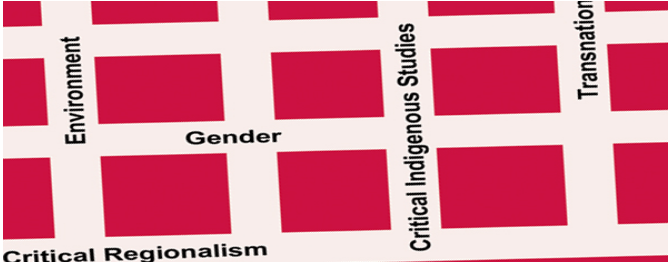
American Studies ETDs
Publication Date
10-6-2016
Abstract
This dissertation considers the pivotal role that liberalism, particularly as it is expressed and enforced through post-livestock reduction era logics of tribal economic development, plays in advancing a relentless and violent form of U.S. settler colonialism bent on the elimination of Navajo life. I use Michel Foucault’s framework of biopolitics as a theory of history to unlock, identify, and interpret what brought Navajo life into the realm of explicit calculation in Navajo political formations. I use the terms ‘experimental liberalism’ and ‘extractive liberalism’ to frame the two primary biopolitical formations I see at work in this period of Navajo history. I argue that both the experimentation with, and the extraction of, Navajo life emerged in the post-livestock reduction era as two key paradigms for reproducing the ongoing structures and designs of elimination at the heart of U.S. settler colonialism. I examine archival and oral evidence that sheds light on the ways that academic knowledge (the subject of chapter two), ideologies of nationalism (the subject of chapter three), and practices of rape and misogyny (the subject of chapter four) function as technologies of death masquerading as promises of life, and I pair these elements of my study with a critique of the liberal underpinnings of Navajo Studies—a field long dominated by normative approaches to history and anthropology. I call for a reframing of Navajo Studies to what I term Critical Diné Studies. Critical Diné Studies draws from alternative political formations that materialized in the 1970s to resist experimentation and extraction. The politics of life that these political formations have developed can best be described as a refusal to die. Following Audra Simpson, I call these alternative political formations “Diné refusals.” Diné refusals have created equally influential historical possibilities by articulating a different politics of Navajo life that contests, redirects, and, ultimately, opposes the violent registers of settler colonial biopolitics that have motivated the liberal formations I track in this study. I therefore draw from their traditions to ground my approach to Critical Diné Studies.
Keywords
liberalism, Navajo studies, Diné history, settler colonialism, biopolitics, social movements
Document Type
Dissertation
Degree Name
American Studies
Level of Degree
Doctoral
Department Name
American Studies
First Committee Member (Chair)
Jennifer Nez Denetdale
Second Committee Member
Alexander S. Lubin
Third Committee Member
Jodi Byrd
Fourth Committee Member
Joanne Barker
Recommended Citation
Yazzie, Melanie K.. "Contesting Liberalism, Refusing Death: A Biopolitical Critique of Navajo History." (2016). https://digitalrepository.unm.edu/amst_etds/52
